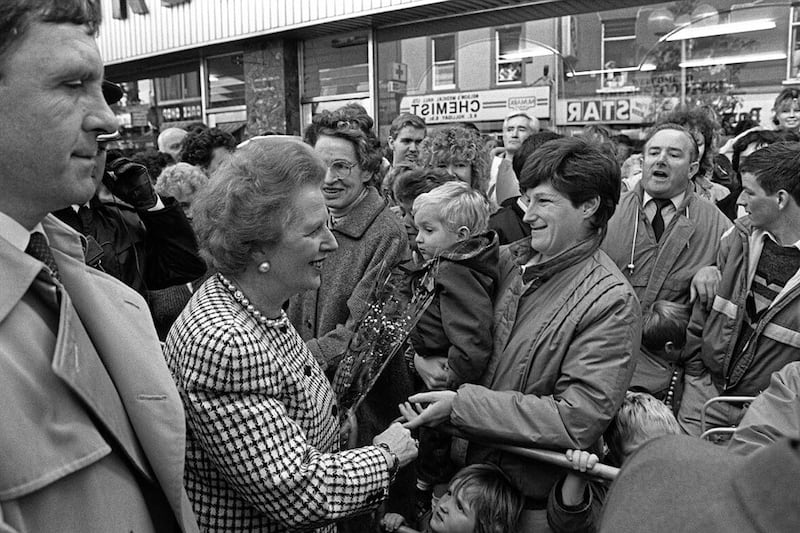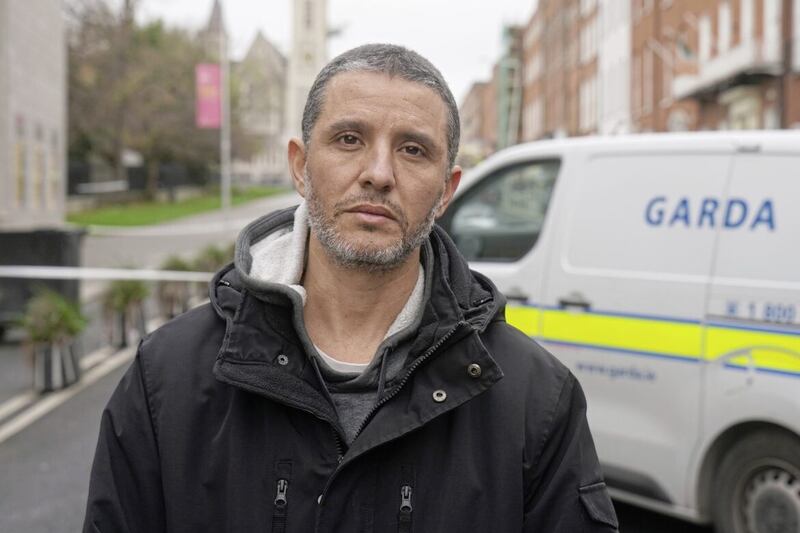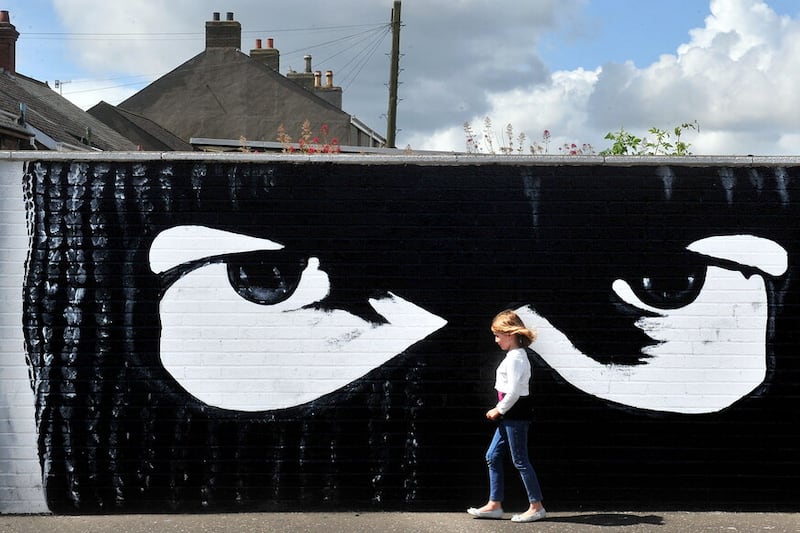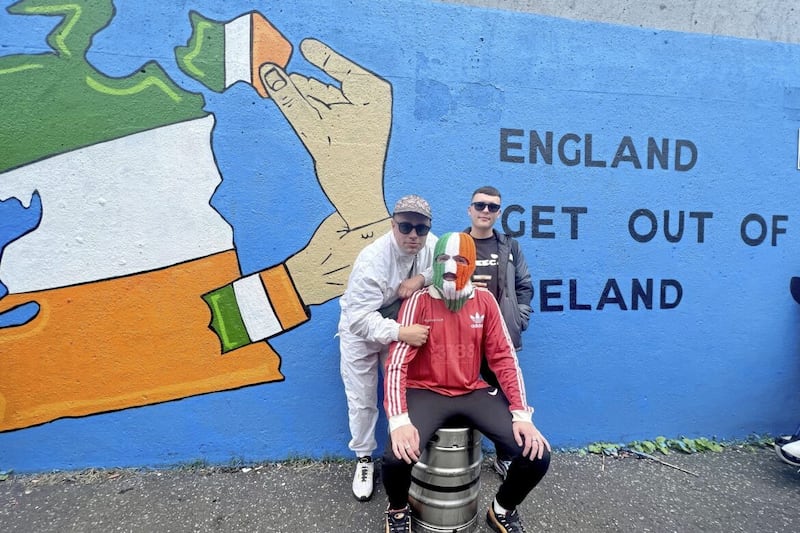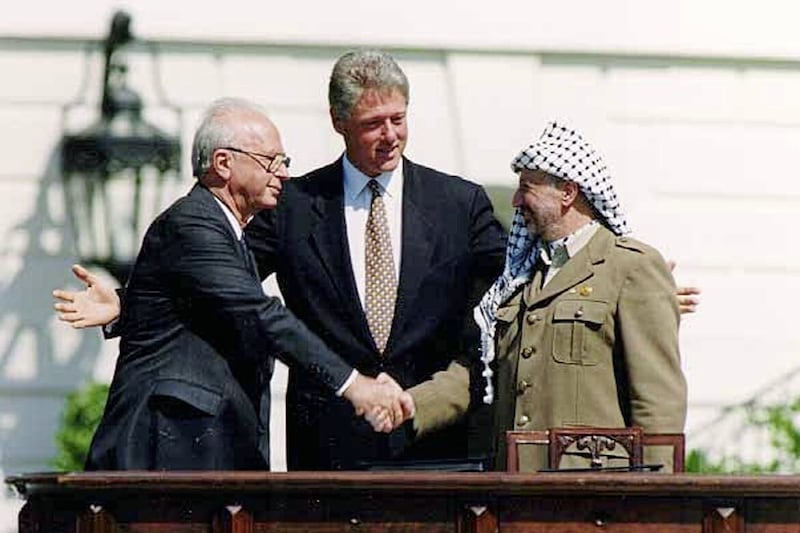IT was the 23rd of February 1993 but I remember it as if it was yesterday.
Snow was crisp under foot and the winter wind blew right through to the marrow of my bones.
The sky was clear, seemingly bird-free and it was markedly quiet despite the presence of hundreds of tourists.
I remember looking towards the gates and the sign above: 'Arbeit macht Frei'; 'work sets you free'.
Unknowingly I said it aloud and several people glared their disapproval.
I was standing at the gates of Dachau, the first of the Nazi concentration camps - the prototype for what would follow in Auschwitz-Birkenau, Mauthausen and other places.
The original sign for the concentration camps was, like most things, made by a prisoner - a blacksmith called Jan Liwacz.
Like many prisoners he was defiant in spirit and in full sight of his German tormentors welded the letter 'B' upside down.
Liwacz was sent to a concentration camp because he was Polish. His crime was not being an Aryan.
Dachau left an indelible imprint on both my brain and heart.
The Nazi concentration camps represent a stain on all humanity. The ideology that drove the perpetrators was perverted.
Nazis bear responsibility for the murders, mayhem and madness but also to blame are those who did nothing. Those who remained silent. Those who turned away. And of course, the deniers.
The world still has these 'see and do' nothing types. It's because of them that tyrants thrive.
Today we are threatened by demagogues dressed up as democrats. They feed off hatred and pedal fear.
Primo Levi, the Holocaust survivor, who tragically died by suicide, wrote: "Monsters exist, but they are too few in number to be truly dangerous.
"More dangerous are the common men, the functionaries ready to believe and to act without asking questions."
During the Troubles, weren't our prisons also filled with such 'functionaries' - paramilitaries from all sides only too willing to carry out atrocities without ever asking why?
In 1993, there were two things that I could not take in. The first was the insanity of it all.
These Germans dehumanised people. It wasn't just cruel it was sadistic.
Dachau opened as early as 1933. That is a mere seven years before the birth of my father. That is history which we can touch.
The inmates were those who offered political opposition to the Nazis including social democrats, communists, Lutheran and Catholic clergy, academics and, of course, Jews.
There were over 35,000 deaths in Dachau and its sub-camps. A typhus epidemic wiped out 15,000 prisoners in a few months.
Many of the German pharmaceutical and cosmetic companies knowingly participated in experiments with the Nazis doctors using real and live people as lab rats. This was barbarism on an industrial scale.
The second thing that struck me was the apparent lack of physical resistance shown by inmates.
Of course they were brutally beaten, starved and largely forgotten by the outside world but at first glance they appear to have resigned themselves to their fate, as if God willed it.
But when you read the testimonies of concentration camp survivors, you discover that survival itself was resistance.
Survival was an act of defiance from people who could sink no lower in human terms. They had everything taken from them - homes, clothes, shoes, glasses, hair, teeth and dignity. They had no names, only numbers.
All of this flooded back to me last week when I visited Auschwitz-Birkenau.
The scale of these camps compared to Dachau is nearly physically incomprehensible.
Levi said of Auschwitz that even the dawn came on the inmates like a betrayer.
Most of us love to watch the dawn but to hear the the rising of the sun described "as an ally of our enemies to assist in our destruction" is shattering, even heartbreaking.
During my visit the guide recalled in detail the various triangles the Nazis gave inmates to mark them out - red for trade unionists and politicos, pink for homosexuals, black for Roma, the disabled and pacifists, purple for Jehovah's Witnesses and blue for emigrants and forced labourers.
And yet whilst we may not use actual triangles to mark out difference and diversity, they are still there, invisible and unmentioned.
People here and across the world are still stigmatised, abused and discriminated against for their sexuality, their beliefs, their poverty or their ethnicity.
Today's column is no history lesson. It's a reminder of the ever-present threat of man's capability and indeed capacity for acts of gross inhumanity.





